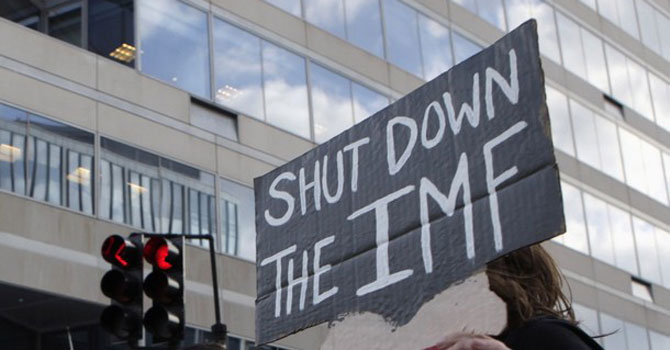Essentially, by running down our foreign exchange reserves we will meet this year’s gap of $4.5bn (which would have been wider but for the recent fortuitous fall in oil prices) between our external bills and expected inflows.
That we will scrape through this year ending June will not give our creditors much comfort for next year. Therefore, expect a visit from the IMF before September 2012 to start discussions on the contours of the next programme.
With elections on the horizon, politicians of all hues would prefer the IMF negotiating a programme with the caretakers, deflecting responsibility to and public scorn on, an ‘unrepresentative’ government.
This strategy has been successfully deployed in the past. Unfortunately, having been bitten in the past, the IMF will not fall for this one. To ensure ownership it will insist on programme finalisation with the government that assumes office next.
With economic activity dampening globally and the US Congress and the administration playing hard ball, leading to increased uncertainty in the flow of programmed funds, the IMF is bound to be somewhat concerned about our ability to honour our obligations to them — since its charter does not allow for the ‘re-scheduling’ of loans.
Moreover, as the lender of last resort for a country whose balance-of-payments situation becomes chaotic and whose currency is threatening to go into free fall, the Fund cannot realistically be expected to remain a disinterested observer. In other words, as night follows day, we will be in the parlour of the IMF before the closure of calendar year 2012. That being so, what will be the stance of the Fund?
One school of thought contends that: a) in 2008 we got a relatively soft programme (contrary to popular perception) thanks to the US interceding on our behalf; b) the eurozone debt crisis had not yet hit the financial world and we were among the first few queuing up at the Fund’s window, especially at a time when the utility for continuing with an agency like the IMF was being seriously questioned.
Now, this arguments proceeds, when we approach the Fund for help, the programme is going to be harsh and stringent, starting with the IMF demanding that the conditionalities of the previous programme that we failed to meet, before we parted ways with them, should be treated as ‘prior actions’ before it is prepared to loosen its purse strings.
Furthermore: a) the Fund will, at best, merely ‘roll over’ what we owe them and give back to us what we would have repaid this year — in any case, the IMF is these days not awash with spare cash and billions of dollars are not exactly burning holes in people’s pockets; b) the European representatives on its executive board will not take kindly to any leniency to a prolonged user of the Fund’s resources and with an abysmal record of failing to complete 10 of 11 programmes (hence infamously labelled as a “one-tranche country”), especially when tough conditionalities have been imposed on European borrowers like Greece, Ireland, etc. So, those holding this point of view, would claim, fasten your seat belt and brace yourself for a rough ride.
The other school of thought presents a divergent view — opposing most bets being placed currently. And this writer for one would not be surprised if this viewpoint prevails.
This version argues that the Americans want to bail us out (of course, only to the extent that we can pay our ICU-related medication bills) because of our nuisance value (in official parlance referred to as our strategic location and role in the war against terror).
They have reconciled to the reality that external assistance does not have enough leverage to buy long-delayed structural and policy reforms in Pakistan. That we are not willing to transform ourselves and prefer to remain in the ICU, while the rest of even South Asia, including Bangladesh (who our elders pontificated in the 1970s was a ‘basket case’), bypasses us. That we as a nation are content to bump along at the bottom while structural issues continue to build up.
Whereas their internal political dynamics will not permit the Americans to fund us directly they will coax key members of the IMF board to ‘cooperate’. They can, of course, huff and puff in the board when deliberating our request for a new programme, but will eventually approve a less politically intimidating one.
We may even be lucky if the results of recent elections in Greece and France and protests in Spain force a revision of IMF-authored austerity programmes. And the first signs of events likely to unfold in this manner are already becoming visible.
The World Bank (always headed by an American) has started to provide fresh money, despite our indifferent performance against agreed ‘performance criteria/ indicators’.
The writer is a former governor of the State Bank of Pakistan.













































